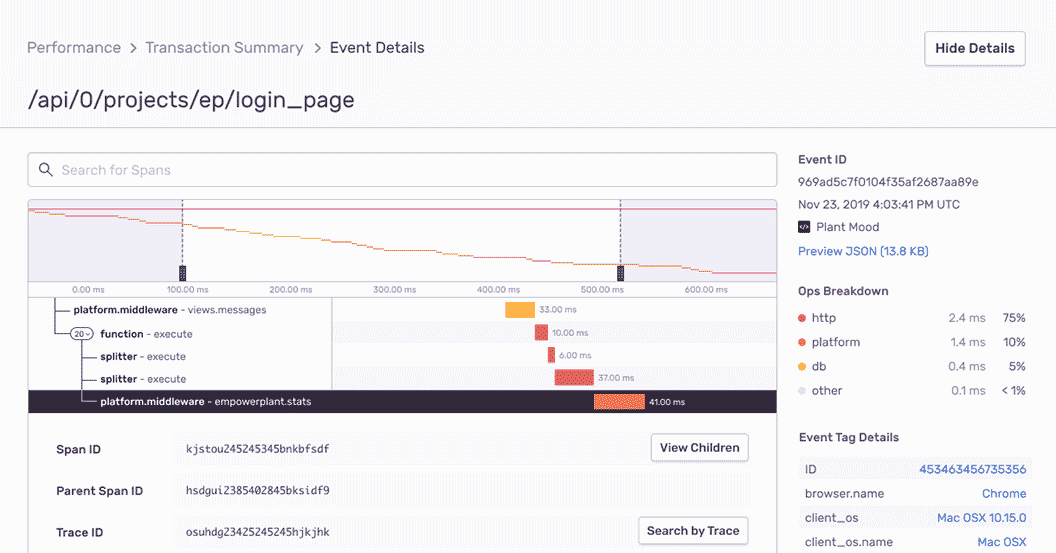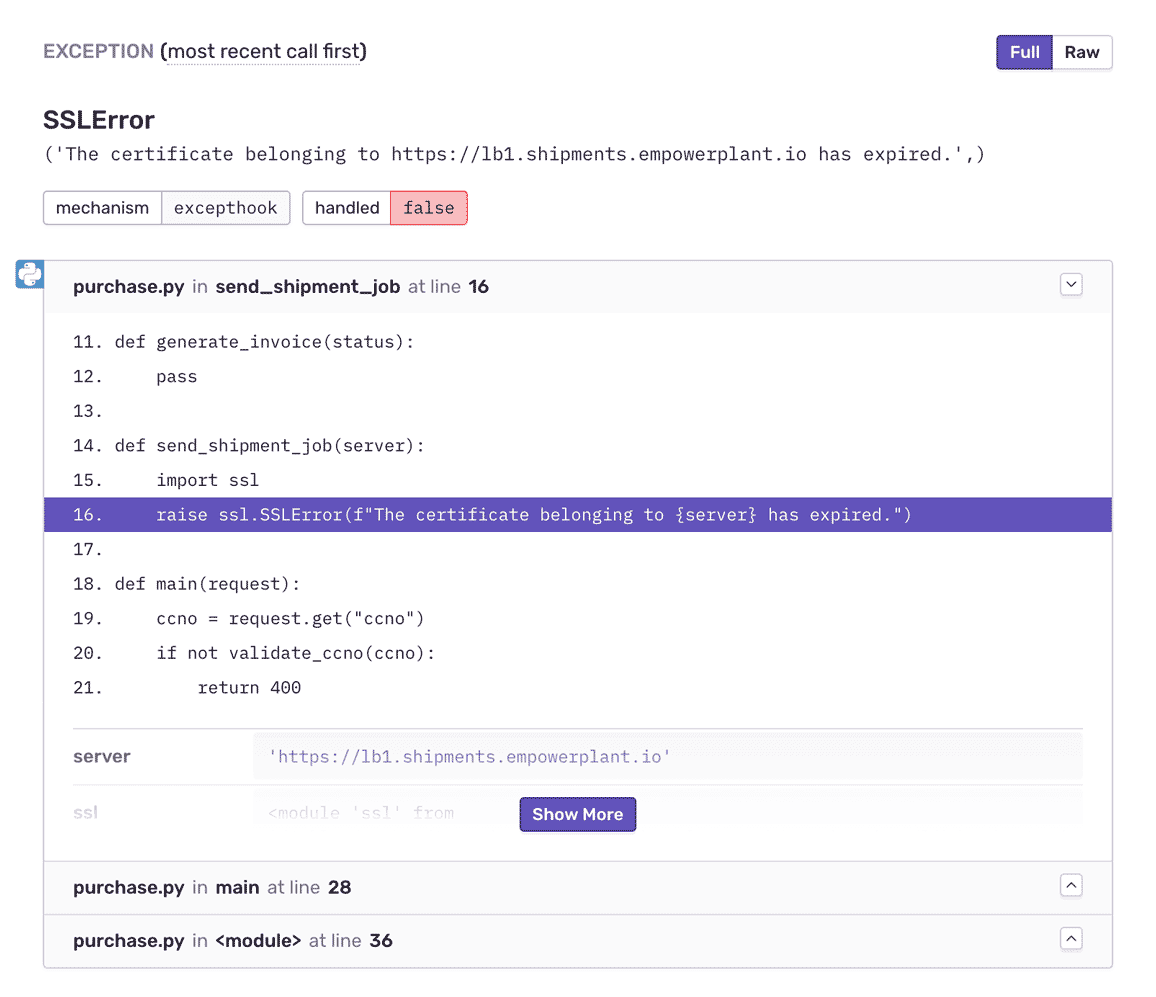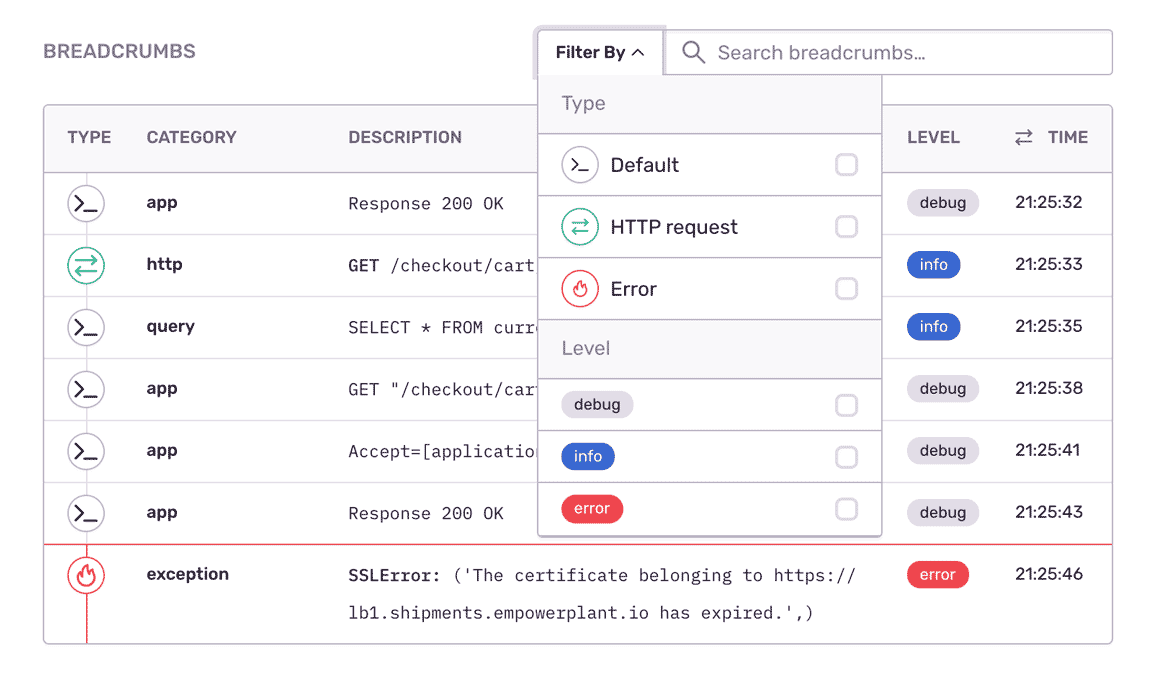
RQ Error Monitoring
Actionable insights to resolve RQ performance bottlenecks and errors. Improve your monitoring workflow with a full view of releases so you can mark RQ errors as resolved and prioritize live issues.
Getting Started is Simple
Create a file called mysettings.py with the following content:
import sentry_sdk from sentry_sdk.integrations.rq import RqIntegration sentry_sdk.init("https://<key>@sentry.io/<project>", integrations=[RqIntegration()])
Start your worker with:
rq worker -c mysettings # module name of mysettings.py --sentry-dsn="" # only necessary for RQ < 1.0
Check our documentation for the latest instructions.
See all platformsMore than 150K Organizations Trust Sentry with Their Application Monitoring

RQ Performance Monitoring
Within minutes after installing Sentry, software teams are able to trace RQ performance issues back to a poor performing API call as well as surface all related code errors. Engineering Managers and Developers now have a single tool to optimize performance of their code and deliver fast customer experiences with Performance Monitoring.

RQ Error Monitoring with Complete Stack Traces
See local variables in the stack for prod errors, just like in your dev environment. Introspect more deeply into the runtime and jump into the frame to get additional data for any local variable. Filter and group RQ exceptions intuitively to eliminate noise.

Fill In the Blanks About RQ Errors
Expose the important events that led to each RQ exception: SQL queries, debug logs, network requests, past errors. Learn in which version a bug first appeared, merge duplicates, and know if things regress in a future release.
Sentry helps our team fix the most important issues in each release.”
See the Full Picture of Any RQ Exception
Aggregate errors by details like HTTP request, hostname, and app version to see what’s new, a priority, or a trend.
Assign custom tags to reproduce the error environment specific to your application, business, and users.
Find answers to key questions: How actionable is this error? In which app release did the RQ bug occur?